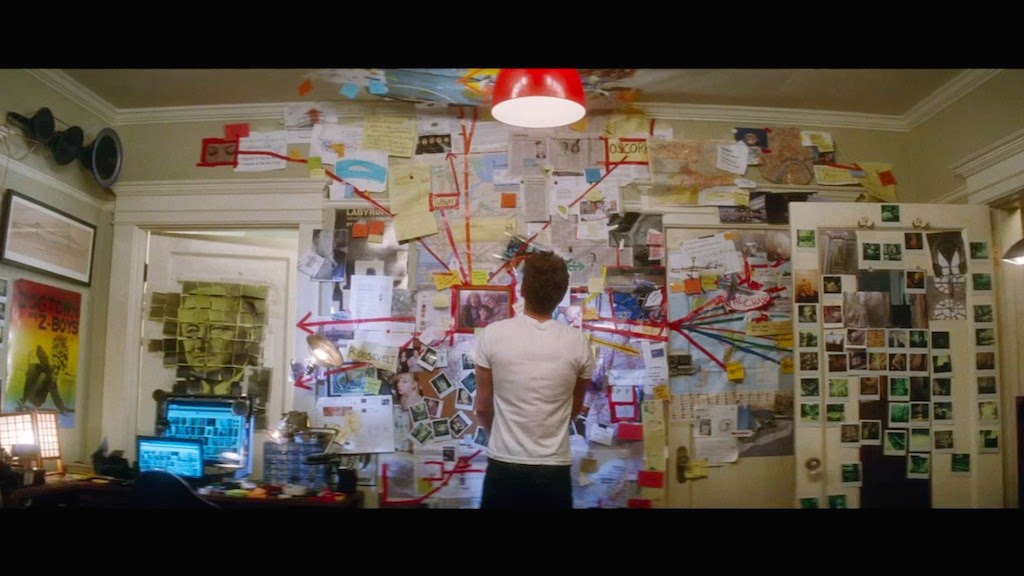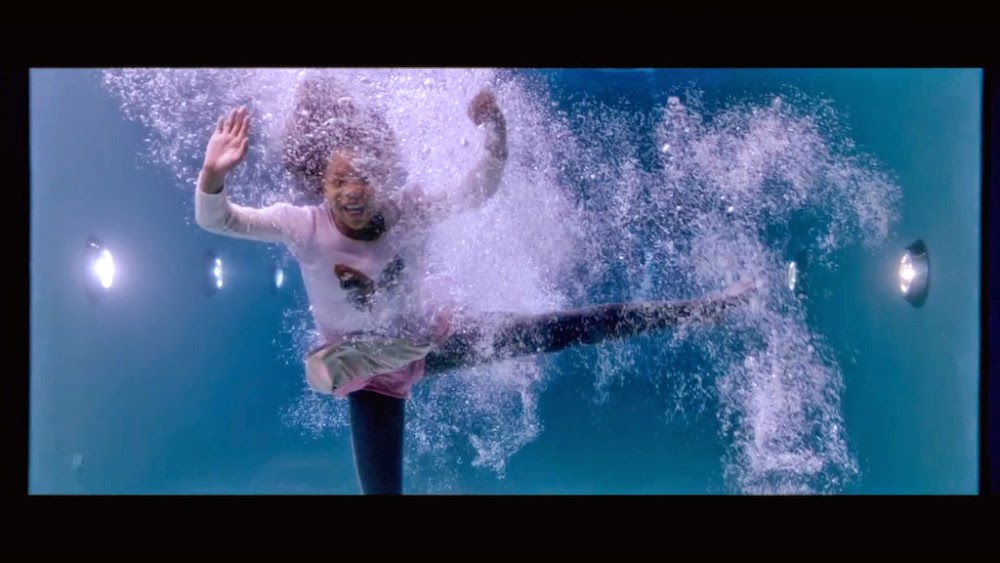Director: Clint Eastwood
Starring: Bradley Cooper, Sienna Miller, Max Charles, Luke Grimes, Kyle Gallner, Sam Jaeger, Jake McDorman, Eric Close
Running Time: 132 min.
Rating: R
★★★ (out of ★★★★)
The one thing Clint Eastwood's American Sniper can't be accused of is failing to live up to its title, which of course comes from the 2012 memoir by Chris Kyle, the most decorated and lethal sniper in U.S. Military history. Regardless of how much it bends facts or the public's reaction, it does feel very true to the legendary figure the film was intended to eulogize. Controversy has only entered the equation when discussing the heroics of his actions, a debate that's entirely political and has little to do with what unfolds on screen. Let's just get it out of the way now: Kyle was a hero who courageously served this country and that wouldn't have changed whether this movie was made or not. The argument that Eastwood should have presented a more even-handed portrayal of the man or the side he fought against is barking up the wrong tree as far as the film's problems are concerned.
Had Eastwood actually released a flag-waving, right-wing propaganda piece I'm not sure I'd have much of a problem with it considering how infrequently that stance is represented in Hollywood. But he mostly plays it down the middle. If pushed, it's fair to say this leans slightly pro-war, but more accurately this is a military procedural doubling as a character study. Unfortunately, it's far less successful at the latter and the former is very much something we've seen before. It's well executed, even if I'll admit to being a bit perplexed as to how it's raked in gazillions at the box office and scored a Best Picture nomination. This raises the question as to whether it's possible to appreciate and even admire what Kyle did, while not being completely sold on the idea of stepping into what sometimes feel like a first person shooter video game. It's kind of an exhausting watch in ways both good and bad, but the central performance and Eastwood's direction, his tightest in years, manage to win out.
The film depicts each of U.S. Navy SEAL sniper Chris Kyle's (Bradley Cooper) four tours of duty in Iraq, starting with his first deployment following the September 11th attacks in 2001.With each subsequent tour, Kyle's legendary reputation grows, accumulating an impressively lengthy kill list and saving countless American lives. It's only when he returns home in between tours that the cracks start to show, as his traumatic memories and experiences in Iraq haunt his daily life, tearing apart his marriage to wife Taya (Sienna Miller), who believes he should be focusing more on their new son and daughter.
With each trip home Kyle finds it increasingly difficult to adjust to a civilian lifestyle, frequently disoriented and distant as he continues to emotionally drift away. It's a stark contrast to the cool, collected sniper with pinpoint accuracy whose persistent nemesis, Mustafa, a dangerous insurgent sniper, proves to be his biggest obstacle throughout the four tours. He keeps going back, but it's when he permanently returns to his family that he faces his biggest challenge, removed from the only environment in which he truly feels most comfortable. For Kyle, becoming an emotionally engaged and present husband and father is a learning process, as is overcoming the PTSD that's taken over his life.
This is primarily about a man who was born to do what he did, and did it with a calculated diligence few could likely comprehend. While it may seem crass to describe Kyle as being "hard-wired" to kill there's no question that's exactly how Eastwood presents it so framing the discussion any other way would only sugar-coat the obvious. But it's not as if Kyle is presented as this emotionless one-man killing machine, knocking off innocent women and children without a second thought. There are many scenes where we see him physically and emotionally struggle with what his actions, often beating himself up for feeling that he didn't do enough for his men. An early scene even shows him pretty much rejecting any celebration of his accomplishments and a more devastating one back home depicts an encounter with a vet he saved, but can't even look in the eye.
Anyone claiming Eastwood isn't showing the horror or ramifications of war or just simply throwing a victory parade celebrating Kyle's kill count was obviously watching a different film. The entire third act, in which he devolves into such a disengaged zombie that he can't speak to his wife should be proof enough. But even in giving the director points for his balanced portrayal, we still never really learn anything about Kyle that we didn't know going in. And while the film's structure (alternating between war and home life scenes) undeniably keeps the pace moving, it doesn't break any new ground and sometimes feels frustratingly repetitive. It's a throwback war film of sorts not entirely dissimilar to last year's Lone Survivor, and while everyone's tolerance of watching a skilled sniper pick off targets for two-plus hours will vary, mine started to wane after a while. But there's still no denying the sequences are excitingly staged by Eastwood, who keeps the tension level consistently high.
Bradley Cooper doesn't have an easy job here in not only playing a recent real-life figure, but a quiet, intense guy whose lack of emotion is a prerequisite to him being as skilled as he is. There's never much emanating from Kyle, and if Eastwood is to be believed, little in the way of a personality either. That's a challenging character to center a movie around but Cooper meets the physical requirements by bulking up considerably, while also giving us all we need to know through his body language and subtle facial expressions during the tensest of circumstances. If you add up the lines of dialogue he has throughout the film it wouldn't be much because it simply isn't necessary. Kyle is a man who commands respect because of his actions and Cooper really captures that.
The strain on Kyle's marriage never carries the emotional resonance it should and part of that problem stems from the fact that Taya is treated as almost a whiny, superfluous diversion that pops up in between tours. It's easy to just lay all the blame on Eastwood or screenwriter Jason Hall for an underwritten, borderline misoginistic character, but Sienna Miller doesn't do herself any favors by acting with a capital "A" in all her emotionally charged scenes. Something about the performance just rubbed me the wrong way, as I never bought that I was watching Taya Kyle so much as a Hollywood actress shoehorned into a stock role of the distraught wife. While much has been made of the noticeable plastic baby used in the now infamous nursery scene, that actually stuck out less to me than Miller's frequently grating work.
The biggest question mark going into the film wasn't how Eastwood would navigate the tricky minefield of Chris Kyle's story, but how he'd address the bizarre circumstances surrounding his eventual death. It's the only detail that doesn't feel widely known, even if the actual event is drenched in the cruelest of ironies. Eastwood mostly chooses not to dwell on it, save for a very brief scene at the end that doesn't really work due to a lingering, ill-advised facial expression by Miller that inexplicably implies Taya foresaw his death. While holding back was probably the respectful thing to do, it does seem as if an intriguing commentary surrounding its irony was left on the table. Much like Kyle's life, the film doesn't end so much as suddenly stop, with a certain comfort in knowing he finally found his calling and purpose in helping other veterans.
What's interesting is that given how mixed a bag the film is it's mostly being attacked for all the things Eastwood gets right and his intentions in making it. It's revealing how few complaints center around the actual content. That it's about an important subject aimed at an arguably underserved audience might be the best thing American Sniper has going for it. It delivers all the tension the trailer promises, but the real surprise might be how little we actually learn about Chris Kyle. By the time the credits silently rolled, I was left strangely unfulfilled, but respectfully impressed.



































































































































